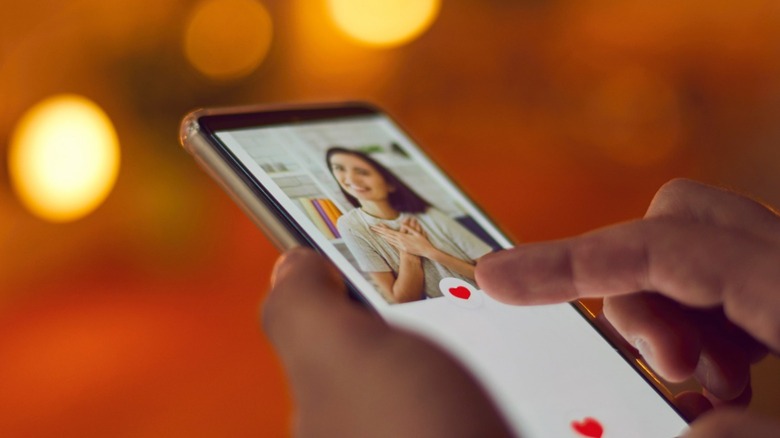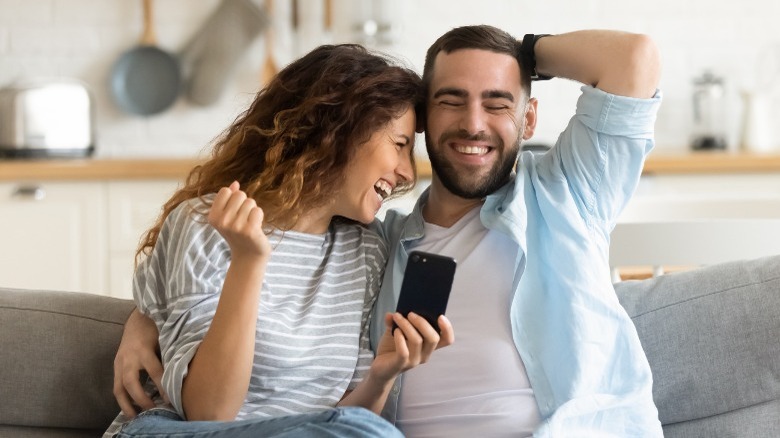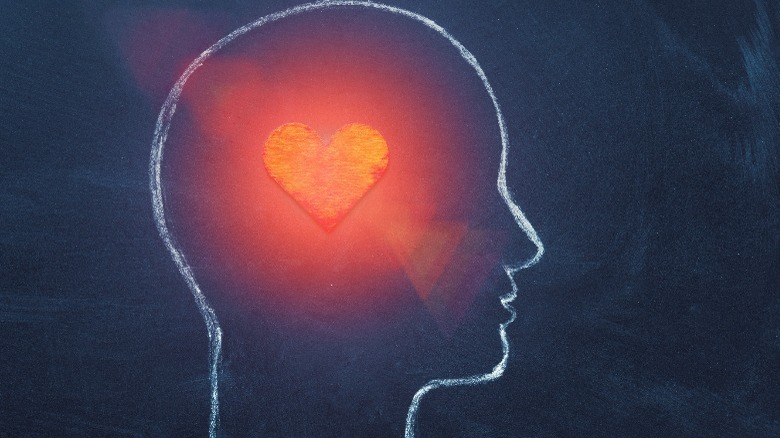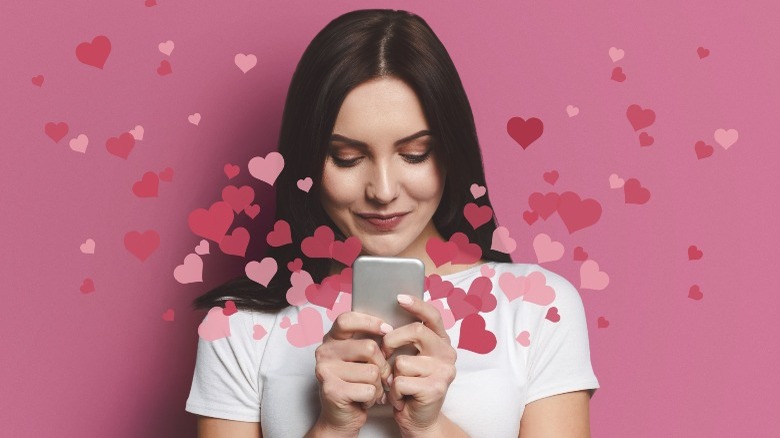What Dating Apps Really Do To Your Love Life
When dating websites first became a thing in the '90s, well, let's just say they were not that popular. "It was reserved for geeky people who had a computer, and you had to be at home behind these huge screens that you couldn't take anywhere," Elizabeth Timmermans, a Belgium-based researcher and author, told Discover Magazine.
Fast-forward to recent times, however, and approximately 270 million people use some sort of online dating platform around the world, per Business of Apps. That's a lot of people, and in the United States alone, 44.2 million people used the apps in 2020, with that figure projected to grow to 53.3 million by 2025, according to Statista. And people have options when it comes to which online dating apps and websites they want to use. Some of the most popular in the United States include Tinder, Bumble, Hinge, OkCupid, and Match.com. Tinder alone reported 1.6 billion swipes and 26 million matches a day in the earlier half of this year, according to Discover Magazine.
No one can deny that online dating is now an integral part of many Americans' daily lives. But what exactly has this technological development done to our love lives on an emotional, psychological, and even physical level?
Dating apps are altering physical connections
It's clear that dating apps are here to stay. If nothing else, the coronavirus pandemic solidified that. Even before that, though, online dating was the most common way that American couples would meet, with a 2017 Stanford University study showing that about 40 percent of heterosexual couples in the U.S. met online by the year it was published. On top of bringing couples together, dating apps also allow people from different cultural, religious, social, educational, and professional backgrounds to both digitally and physically connect, some of whom might have never crossed paths otherwise.
However, the impact that dating apps have on our physical connections is not always positive. Yes, you can meet more potential love interests online than you might "IRL," but the quality of the in-person meetings seems to be going downhill as the number of matches someone has increased, according to a study conducted by Duke University. In other words, being a serial dater doesn't necessarily make you a good one. In fact, it might even make you worse. There is also a lack of evidence that algorithms designed to match people based on personality types lead to long-lasting, positive relationships in the future (via Psychology Today).
The psychological implications might be serious
The psychological effects dating apps have on our love lives, and more importantly, our brains, may also be quite severe. First of all, the gamification of dating apps, which uses the same type of reward system utilized by slot machines in Las Vegas, causes our brains to release endorphins whenever we get a notification or a match, effectively incentivizing us to keep using them, according to Discover Magazine.
The practice of "ghosting" is another psychological phenomenon that researchers find jarring. Dating apps allow people to simply cut off communication without so much as saying a word. People typically do so for one of five reasons: convenience, attractiveness, negative interactions, relationship state, or safety, one study led by Dr. Leah LeFebvre and published in the journal Imagination, Cognition, and Personality found (via Psychology Today).
While in some cases ghosting is perfectly justifiable, in other cases, such as "convenience" or "attractiveness," it can negatively trigger the one who is being ghosted — as studies have shown that this type of social rejection activates the same type of pain pathways in the brain as physical pain, according to Discover Magazine. The fact that ghosting is completely normalized in online dating is also working against the apps' main objective of connecting people. As LeFebvre discovered, "most people" have ghosted and been ghosted. It's (unfortunately) commonplace.
Dating apps affect our emotions
There is clear evidence that dating apps are also affecting our lives on an emotional level. To start with the cons, dating apps can leave one feeling stressed out, especially if they have developed an unhealthy relationship with them. Caroline Harper, a specialist mental health nurse at Bupa UK, told Happiful that dating apps "can leave you feeling low or anxious, they can wreak havoc on low self-esteem, too. Although having low self-esteem isn't a mental health issue itself, it can increase feelings of stress, depression, and anxiety."
Some users, however, find that dating apps can temporarily boost their moods and confidence. "Sometimes when I'm drunk or in-my-feelings, I like to swipe, and it makes me feel better," one user told Discover Magazine. "Seeing someone matched with you or sent you a compliment boosts your self-esteem, if nothing but for that short moment," they added.
Overall, the Pew Research Center found that most Americans who are currently using dating sites or apps, or who have used them in the recent past, found themselves feeling more frustrated than hopeful, giving reasons such as lack of connection, safety concerns, or too much emphasis on hook-up culture.



